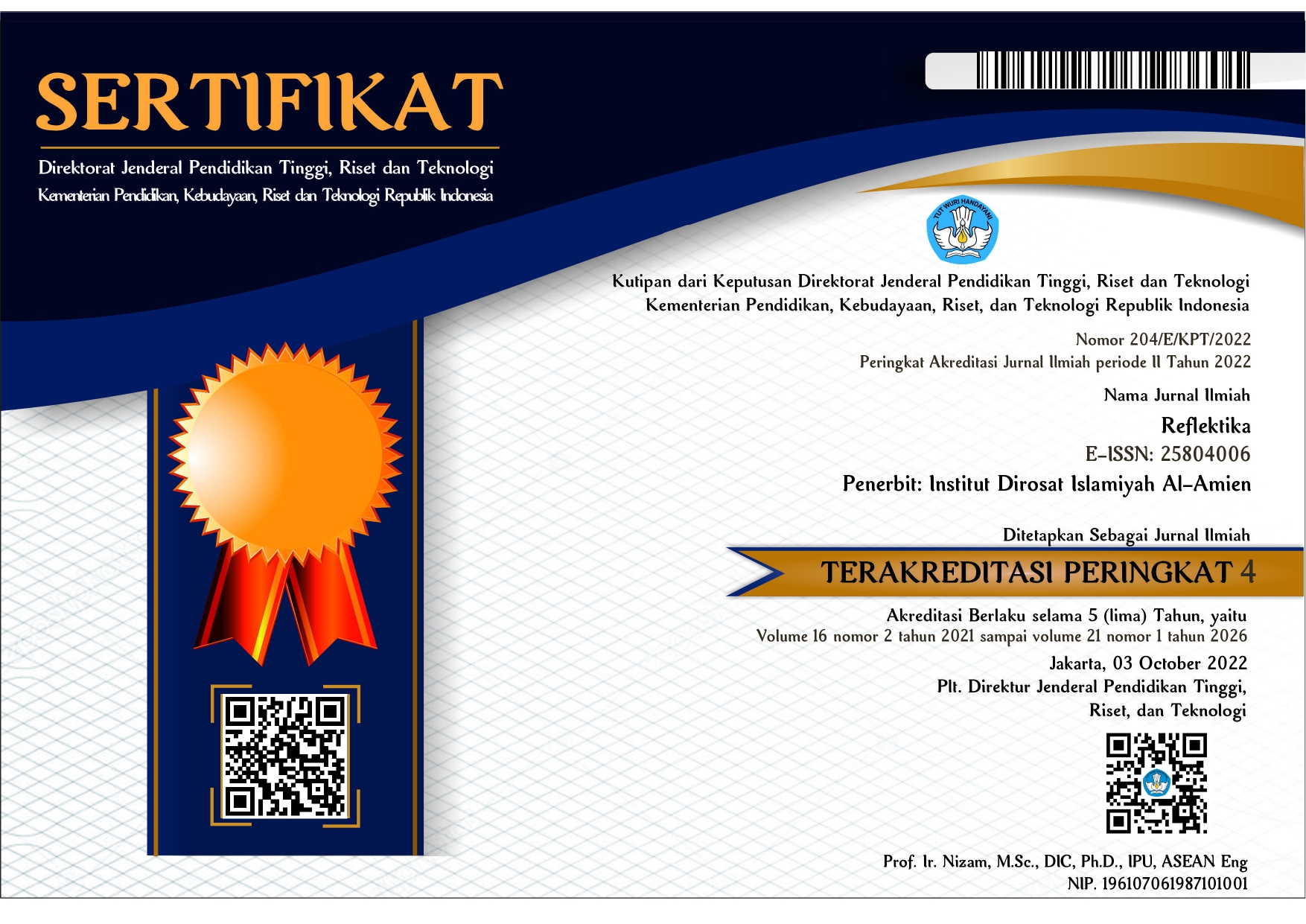KONSEP METODOLOGI PENDIDIKAN ISLAM KLASIK DAN RELEVANSINYA DENGAN MASA MODERN
Abstract
Classical Islamic education is an educational concept that is deeply rooted in the history of the development of education in the Islamic world, emerging during the golden age of Islamic civilisation with the development of madrasahs and Islamic universities. This educational methodology is based on Islamic religious principles and the teaching of the Quran, using traditional approaches in the learning process. In this challenging modern era, understanding the relevance of classical Islamic education methodology is very important. During the Abbasid Dynasty, teaching methods were categorised into three types: oral, memorised, and written. Oral methods included dictation (direct writing from the teacher), lecture, qira'ah (reading), and discussion. The imla' (writing) method was used at various levels of classical Islamic education. During the time of the Prophet, the methods used included the al-asma' method or lectures. The values of classical Islamic education emphasise the awareness of the individual as a servant of God and a member of society with social responsibilities as well as the ability to manage and utilise God's natural creation.The relevance of classical Islamic methodology to the demands of modern times is increasingly important. The relevance of classical Islamic methodology to the demands of modern times is becoming increasingly important. With the digital revolution and the wide penetration of information technology, Islamic education must be able to utilise these technological tools to increase the effectiveness and accessibility of learning.
Keywords
References
Abdullah, N. I. M. (2022). The Relevance of Classical Islamic Education in the Modern World: A Study on Traditional Madrasahs in Malaysia. Journal of Islamic Educational Research, 5(1).
Ahmed, M. D. (n.d.). Moslem Education Prior to the Estabilishment of Madrasah. Jurnal Institut of Moslem Monirity Affairs, 8(2).
Al-Abrasyi, M. A. (1970). Dasar-Dasar Pokok Pendidikan Islam. In Bustami A. Gani dan Djohar Bahry. Jakarta: Bulan Bintang.
Al-Ali, H. A. (n.d.). At Tarbiyah al-Islamiyyah fil-Qurni ar-Rabi’ al-Hijri. In Cairo: Dar al-Fikr. Cairo: Dar al-Fikr.
Al-Khudari, S. M. (2016). Bangkit Dan Runtuhnya Khilafah Abbasiah. Pustaka Al-Kautsar.
Asrohah, H. (1999). Sejarah Pendidikan Islam. Jakarta: Logos Wacana Ilmu.
Hasan, A. (2023). The Significance of Islamic Religious Education in Character Building: A Case Study in Indonesia. Journal of Islamic Education Studies, 8(2), 78-92.
Hasan, A. I. (n.d.). At-Tarikh Al-Islamiyyah Al-’am. Maktabah al- Khossoh al-Misriyah.
Hitti, P. K. (2005). History of the Arabs. Serambi Imu Semesta.
Langgulung, H. (2002). Peralihan Paradigma Dalam Pendidikan Islam dan Sains Sosial. Jakarta: Gaya Media Pratama.
Muhaimin, & Mujib, A. (1993). Pemikiran Pendidikan Islam: Kajian Filosofis dan Kerangka Dasar Operasionalisasinya. Bandung: Trigenda Karya.
Mustofa, M., Bara, A. B., Khusaini, F., Ashari, A., Hertati, L., Mailangkay, A. B. L., Syafitri, L., Sarie, F., Rustan, F. R., & Hole, M. A. (2023). Metode Penelitian Kepustakaan (Library Research). Jakarta: Get Press Indonesia.
Noer Aly, H. (1999). Ilmu Pendidikan Islam. Jakarta: Logos Wacana Ilmu.
Nuryadien, M. (2020). Metode Amtsal dalam Pembelajaran menurut Perspektif Al-Quran. Al-Fikra : Jurnal Ilmiah Keislaman, 18(1), 52. https://doi.org/10.24014/af.v18i1.7712m
Qatry, al-M. (1985). al-Jami’ah al-Islamiyah wa Dauruha fi Maisar al-Fikr al-Tarbiyah. Cairo: Dar al-Fikr.
Rahman, M. (2021). The Philosophical Foundations of the Quran: An Analysis. International Journal of Islamic Thought,2(1), 45–60.
Salmi, J., Bassett, R. M., & Deane, K. C. (2019). Higher Education: Promise and Performance. World Bank Publications.
Sugiyono. (2019). Metode Penelitian Pendidikan. Bandung: Penerbit Alfabeta.
Wardhana, O., & Saputro, W. (2021). Jurnal Al- Fawa ’ id. XI(2), 1–25.
Yulia, F. (2013). Terjemah Dirasat Al-Ijtima’iyyah fil ’Ushur Al-Islamiyyah karya Umar Ridha Kahhalah.
DOI: 10.28944/reflektika.v19i1.1719
Refbacks
- There are currently no refbacks.


.png)

